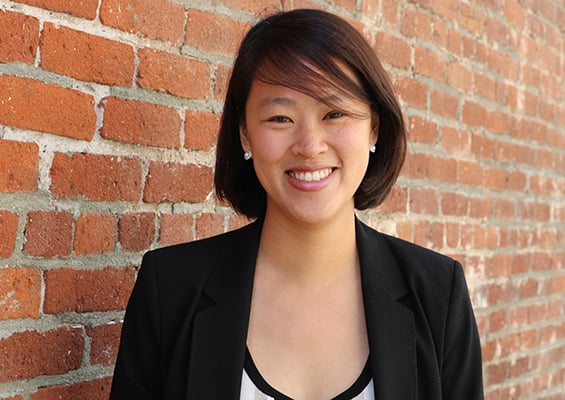Most would agree connecting with the right mentor can help propel your career. Studies show women who have a mentor get more promotions, achieve higher pay and report increased happiness at work.
This paper from Associate Professor Sameer Srivastava reports that women gain more social capital from affiliation with a high-status mentor than their male counterparts. However, a Development Dimension International (DDI) study found that “although 78 percent of women in senior roles served as formal mentors at one time or another, very few of them had a formal mentor of their own."
An overwhelming 63 percent of women in the study reported that they have never had a formal mentor. This is cause for concern considering 67 percent of women surveyed rated mentorship as highly important in helping to advance their careers. So what can women do to find influential mentors? Here are a few tips.
Don’t be afraid to ask
Emilie Arel—CEO of Fullbeauty Brands, and a Haas School alumna—says that one of the things that women who aspire to move up in the organization need to get over is the perception that they have to know everything there is to know. “I think that a lot of times, as women in particular, we come into a situation—it could be my first time as CEO, or my first time as a vice president, or the first day of my MBA classes—thinking that to get a seat at the table, we have to know everything,” says Emilie. “That is just not the case. The more experiences you put yourself in, and more confidence you build around different groups of people, the more you realize you’re worth it and can—and should—ask for what you want.”
“Ultimately, this boils down to confidence—having it, building it, nurturing it. When opportunities arrive on our doorstep, we need to take them and not shy away, thinking we are for some reason undeserving or unqualified,” adds Kellie McElhaney, Distinguished Teaching Fellow and the Founding Director of the Center for Equity, Gender and Leadership.
If you are impressed with the way a colleague conducted a meeting or handled a certain situation, let them know. If you think this person could be a good potential mentor for you, don't be afraid to ask. Be clear about the guidance you're seeking. Do you want coaching on how to deal with key issues you face in the workplace, are you hoping this person can connect you to industry leaders to expand your network, or are you simply looking for recommendations for reading and other resources to grow your skillset?
Seek out opportunities to grow your network
Confidence does come from experience and knowledge, and MBA programs are a good place to get both, along with a rich network of connections—with other students, instructors, and alumni.
“At a conference, I heard a woman on a panel refer to a study that had surveyed women leaders and male leaders. Most of the characteristics between the genders were the same, except when they were asked the question, ‘Do you have a mentor or a sponsor who helped you get to where you are?’ The majority of men said yes, while the women said no. That resonated with me, and it's part of why I got my MBA at Haas—to find those mentors and sponsors,” says Laura Teclemariam, EMBA 18.
“So I'd advise other women to make finding a career mentor a priority. Just think, if each person finds a mentor and then in return becomes a mentor in the future, we can grow the diversity pipeline.”
Pay it forward
The DDI study also found one of the main reasons women struggle to find female mentors is because women fear they don’t have enough expertise to serve as a role model for others. But in most mentoring relationships, it is not subject matter and technical expertise with which less-experienced professionals struggle. They most often need help with core leadership skills like influencing, problem-solving, and negotiation.
Emilie emphasizes the importance of supporting one another in the workplace, stating, “It sounds very cliché, but we have to pay it forward and help each other. I think it's part of my job to take every single recruiter call I get, even if I'm not looking for a job—which I'm not—but to say, ‘Here are five people who I know. You should call them.’ I also make a point to take every LinkedIn call I get, especially from women, to have a coffee with them or have a 15-minute phone call and see how I can connect them."
“It’s my belief that each of us can play a powerfully positive role in shaping the cultures of the organizations for which we work, persistently nudging them in the direction of gender equity while dismantling policy and organizational obstacles that stand in the way for women in the workplace," Kellie adds. "There are a variety of ways that women—and men—can accomplish this."









